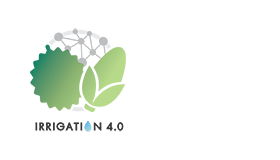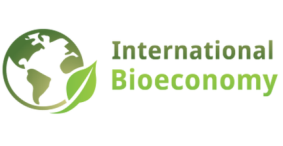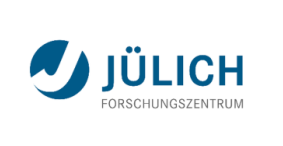IRRIGATION4.0
Both in Southeast Asia and Europe, the transition towards a bio-based economy holds great potential for economic growth, rural development and decreasing fossil fuel dependence, but requires tackling important challenges. One of these is the steady, reliable and affordable supply of sustainably produced biomass in the agricultural sector. A reliable supply of biomass (for food, feed, fuel) in terms of quantity, quality and continuity, heavily depends on agronomic management practices. A smart irrigation system aimed at optimizing water use in a cost- and effort-affordable way addresses the EU and SEA bioeconomy strategies for the agricultural sector, including the sustainable exploitation of resources, resource use efficiency, and rural development. Moreover, both the irrigation-dependency of plant biomass production and the deficiency of resources will further increase due to climate change. As such, a smart irrigation system fits well within objectives of mitigating and adapting to climate change. Finally, stimulating innovation in the agricultural sector is high on the strategic agendas of both the EU and SEA. This collaborative project aims at creating innovation as it is fully embracing the concepts of agriculture 4.0, including improved wireless connectivity, sensor network, minimizing power consumption, cloud storage, and big data processing.
IRRIGATION4.0 focuses on a plant-based irrigation platform that contributes to the advancement of sustainable plant production systems in Thailand, Germany and Myanmar. It involves the development of a new irrigation scheduling system that can reduce water consumption in the agricultural sector by being tuned to the plant’s actual water use, and to agronomic practices aimed at maximizing yield. It therefore improves and modifies soil moisture- and evapotranspiration-based irrigation platforms, currently available on the market.
IRRIGATION4.0 in particular involves two different plant species and production systems that require appropriate irrigation to achieve high yields: high-value fruit orchards and an arable crop, represented by durian (Durio zibethinus L.) and maize (Zea mays L.), respectively. These were chosen in order to maximize the project’s potential application areas, to raise its scientific value in terms plant water use for a tree species and an annual C4 monocot crop, and to challenge the technology under different scenarios. Both durian and maize are in itself important components of the bio-based economies of Thailand and Myanmar, and maize is an important feed crop in Europe.
IRRIGATION4.0 primarily contributes to the consolidation and/or introduction of agriculture 4.0-related research at the National Electronics and Computer Technology Center, National Science and Technology Development Agency, Thailand (NECTEC/NSTDA), Forschungszentrum Jülich, IBG-2 Plant Sciences, Germany (FZJ) and the Faculty of Computer Systems and Technologies, University of Computer Studies, Yangon (UCSY), Myanmar, and to the development of human resources in and across these institutes, including the training and mobility of researchers. IRRIGATION4.0 involves the fields of embedded systems, wireless sensor network, cloud storage, image processing, machine learning, plant phenotyping, plant physiology, agronomics, and economics.
Objectives of the project are
- Improving both the quantity of applied irrigation and its timing by means of a plant-based irrigation scheduling system.
- Validating psychrometers (stem water potential) and thermal infrared imaging (canopy temperature) as plant-based sensors.
- Developing the irrigation decision algorithm, including a plant-based variable on plant water status.
- Modifying an agriculture 4.0-type irrigation platform to accommodate for additional sensor nodes and the new irrigation decision algorithm.
- Validating an improved plant-based irrigation scheduling system in a durian tree orchard and a maize field.
- Developing a strategy for the exploitation of the project’s results.
Project coordination
Dr. Teera Phatrapornnant
National Electronics and Computer Technology Center (NECTEC), National Science and Technology Development Agency (NECTEC)
112 Thailand Science Park, Phanonyothin Rd., Khlong Nueng, Khlong Luang, Pathum Thani, 12120, Thailand
+ 66 2564 6900 Ext. 2816
teera.phatrapornnant@nectec.or.th







